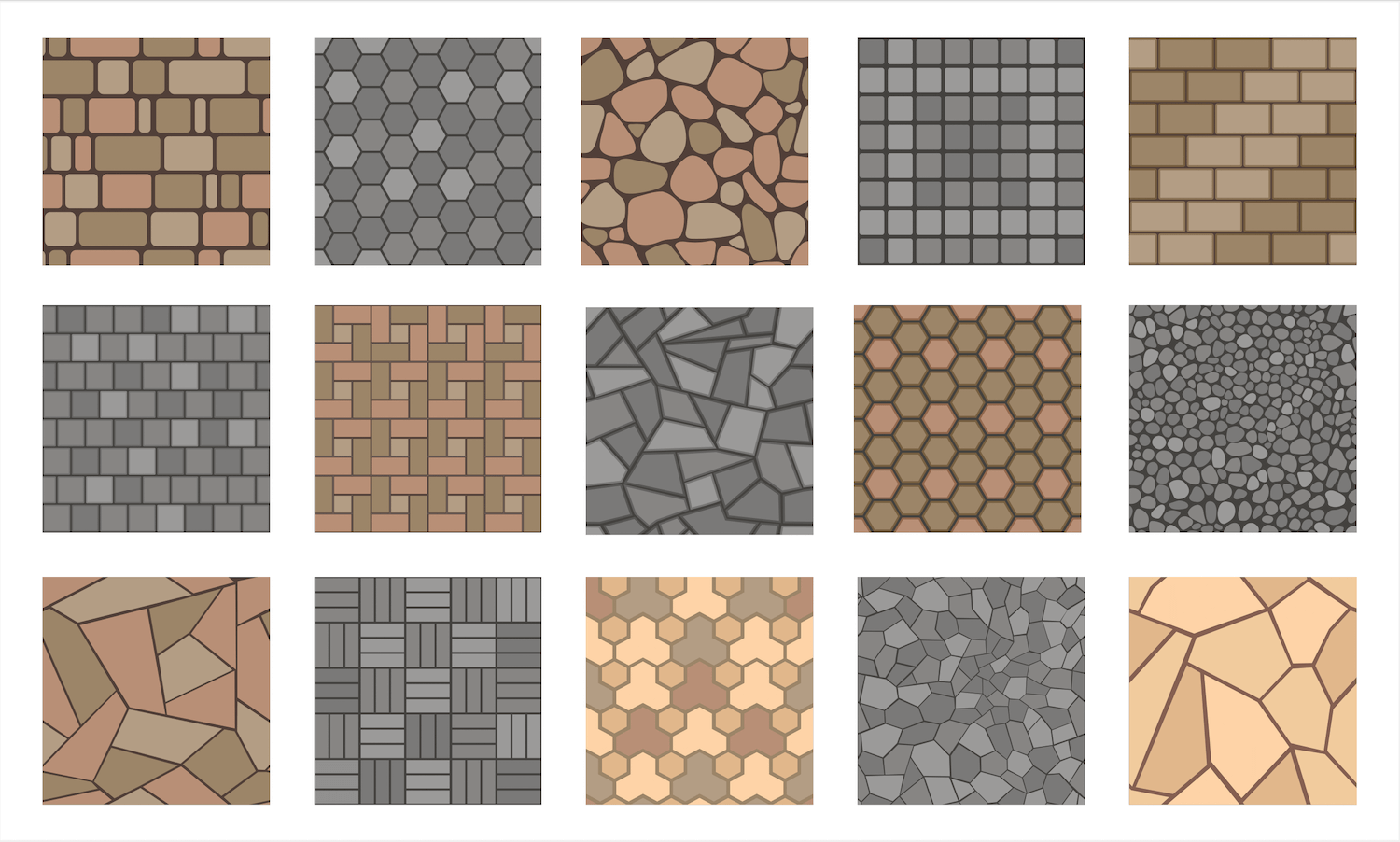
Paver Types: A Comprehensive Guide to Materials and Applications
Introduction
Pavers, also known as paving stones, are versatile and durable materials used to create beautiful and functional outdoor surfaces. They come in a wide range of materials, shapes, and colors, allowing for endless design possibilities. Understanding the different types of pavers available is essential for selecting the right ones for your project.
Concrete Pavers
Concrete pavers are the most common type of paver. They are made from a mixture of cement, sand, and aggregate, and are typically available in a wide range of colors and shapes.
Advantages of Concrete Pavers:
- Durable and long-lasting
- Resistant to cracking and fading
- Available in a variety of colors and shapes
- Easy to install and maintain
Disadvantages of Concrete Pavers:
- Can be heavy and difficult to move
- May crack if not properly installed
- Can absorb heat and become hot in the sun
Brick Pavers
Brick pavers are made from fired clay and are known for their classic and timeless appearance. They come in a variety of colors and textures, and can be used to create a wide range of patterns.
Advantages of Brick Pavers:
- Durable and long-lasting
- Resistant to fading and wear
- Classic and elegant appearance
- Can be used to create intricate patterns
Disadvantages of Brick Pavers:
- More expensive than concrete pavers
- Can be difficult to install
- May crack if not properly installed
Natural Stone Pavers
Natural stone pavers are made from quarried stone, such as granite, limestone, or sandstone. They offer a unique and natural look, and are highly durable.
Advantages of Natural Stone Pavers:
- Durable and long-lasting
- Unique and natural appearance
- Resistant to fading and wear
- Can be used to create a variety of patterns
Disadvantages of Natural Stone Pavers:
- More expensive than other types of pavers
- Can be difficult to install
- May require sealing to protect against stains
Travertine Pavers
Travertine pavers are made from a type of limestone that has a porous and textured surface. They are available in a variety of colors, from light beige to deep brown.
Advantages of Travertine Pavers:
- Durable and long-lasting
- Unique and natural appearance
- Resistant to fading and wear
- Can be used to create a variety of patterns
Disadvantages of Travertine Pavers:
- More expensive than other types of pavers
- Can be difficult to install
- May require sealing to protect against stains
Slate Pavers
Slate pavers are made from a type of metamorphic rock that has a smooth and flat surface. They are available in a variety of colors, from gray to black.
Advantages of Slate Pavers:
- Durable and long-lasting
- Smooth and flat surface
- Resistant to fading and wear
- Can be used to create a variety of patterns
Disadvantages of Slate Pavers:
- More expensive than other types of pavers
- Can be difficult to install
- May require sealing to protect against stains
Porcelain Pavers
Porcelain pavers are made from a type of ceramic that is fired at a high temperature. They are extremely durable and resistant to fading and wear.
Advantages of Porcelain Pavers:
- Durable and long-lasting
- Resistant to fading and wear
- Can be used to create a variety of patterns
- Easy to clean and maintain
Disadvantages of Porcelain Pavers:
- More expensive than other types of pavers
- Can be difficult to install
- May be slippery when wet
Rubber Pavers
Rubber pavers are made from recycled rubber and are known for their durability and safety. They are often used in playgrounds and other areas where safety is a concern.
Advantages of Rubber Pavers:
- Durable and long-lasting
- Safe and non-slip
- Easy to install and maintain
- Can be used to create a variety of patterns
Disadvantages of Rubber Pavers:
- More expensive than other types of pavers
- Can fade over time
- May not be suitable for all applications
Permeable Pavers
Permeable pavers are designed to allow water to pass through them, reducing runoff and flooding. They are often used in areas where stormwater management is a concern.
Advantages of Permeable Pavers:
- Reduce runoff and flooding
- Help to improve water quality
- Can be used to create a variety of patterns
- Easy to install and maintain
Disadvantages of Permeable Pavers:
- More expensive than other types of pavers
- Can be difficult to install
- May require special maintenance
Size and Shape
Pavers come in a variety of sizes and shapes, from small squares to large rectangles. The size and shape of the pavers you choose will depend on the desired look and function of your project.
Color
Pavers are available in a wide range of colors, from neutral shades to bold hues. The color of the pavers you choose will depend on your personal preferences and the overall design of your project.
Pattern
Pavers can be laid in a variety of patterns, from simple running bond to intricate herringbone. The pattern you choose will depend on the desired look and function of your project.
Installation
Pavers are typically installed on a prepared base of sand or gravel. The pavers are then laid in the desired pattern and compacted.
Maintenance
Pavers are relatively easy to maintain. Regular sweeping and cleaning will help to keep them looking their best. Occasional sealing may be necessary to protect against stains and wear.
Conclusion
Pavers offer a wide range of options for creating beautiful and functional outdoor surfaces. By understanding the different types of pavers available, you can select the right ones for your project and enjoy them for years to come.